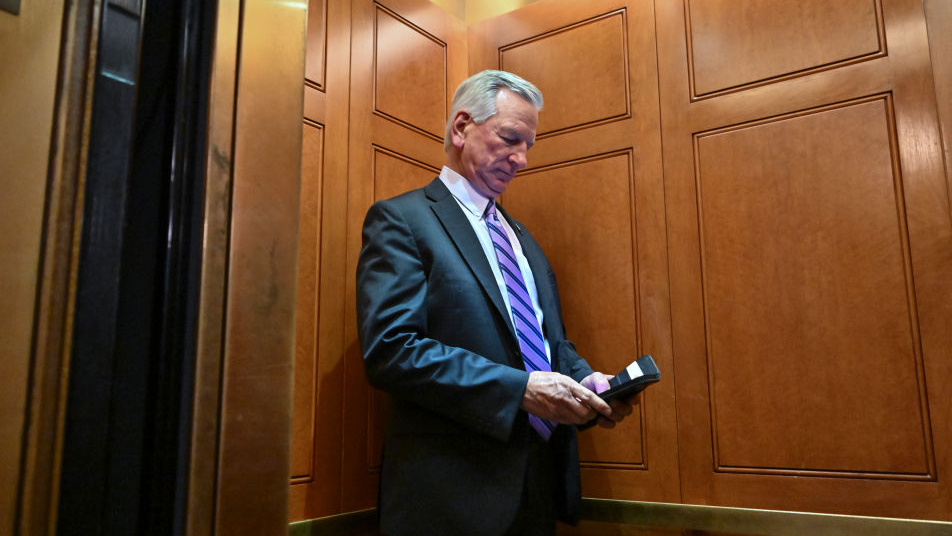Why Sen. Tommy Tuberville finally dropped his military promotions blockade
The Alabama senator had been blocking the advancement of senior officers for 10 months, despite growing political blowback


A free daily email with the biggest news stories of the day – and the best features from TheWeek.com
You are now subscribed
Your newsletter sign-up was successful
The Senate approved about 425 military promotions Tuesday night after Sen. Tommy Tuberville (R-Ala.) abruptly dropped his 10-month-long blanket hold on elevating high-ranking nominees. "We didn't get the win that we wanted," Tuberville said after a Senate Republican lunch. "We got all we could get."
Tuberville had been blocking military promotions since February in a bid to force the Pentagon to change its policy of giving military personnel time off and travel expenses if they needed to go out of state for abortion services or some fertility treatments.
"In the end, this was all pointless," President Joe Biden said in a statement. "Sen. Tuberville, and the Republicans who stood with him, needlessly hurt hundreds of service members and military families and threatened our national security — all to push a partisan agenda."
The Week
Escape your echo chamber. Get the facts behind the news, plus analysis from multiple perspectives.

Sign up for The Week's Free Newsletters
From our morning news briefing to a weekly Good News Newsletter, get the best of The Week delivered directly to your inbox.
From our morning news briefing to a weekly Good News Newsletter, get the best of The Week delivered directly to your inbox.
Tuberville refused to release his hold even as fellow Senate Republicans started openly criticizing his tactics and military leaders said he was disrupting the lives of promising officers and their families and harming military readiness. "Behind closed doors, Republicans have complained that Tuberville's blockade was hurting them politically as well, given the harm to the military and the focus on abortion, which has been a losing issue at the polls," The Washington Post reported.
What got Tuberville to finally relent, he said, was a push by Senate Democrats to breach his blockade with a resolution that would allow confirming large groups of military nominees at one time for the remainder of the term. Tuberville said after his lunch with GOP colleagues that "all of us are against a rule change in the Senate."
The resolution "had the Republican votes necessary to pass," the Post reported, though The Wall Street Journal said it's "unknown" if nine Republicans were on board. Either way, the Democrats' workaround "was key to moving Tuberville — even if it won't receive a floor vote," Politico reported. "The threat, in the end, was enough."
"I am glad this pointless and gravely damaging ordeal has finally, finally ended," Senate Majority Leader Chuck Schumer (D-N.Y.) said after the promotions were approved. "The senior senator from Alabama has nothing to show for his 10 months of delay … except for the damage he did to our military readiness and the pain he caused to military families." Schumer is expected to hold time-consuming individual votes for the 11 four-star nominees Tuberville is still blocking.
A free daily email with the biggest news stories of the day – and the best features from TheWeek.com
Peter has worked as a news and culture writer and editor at The Week since the site's launch in 2008. He covers politics, world affairs, religion and cultural currents. His journalism career began as a copy editor at a financial newswire and has included editorial positions at The New York Times Magazine, Facts on File, and Oregon State University.
